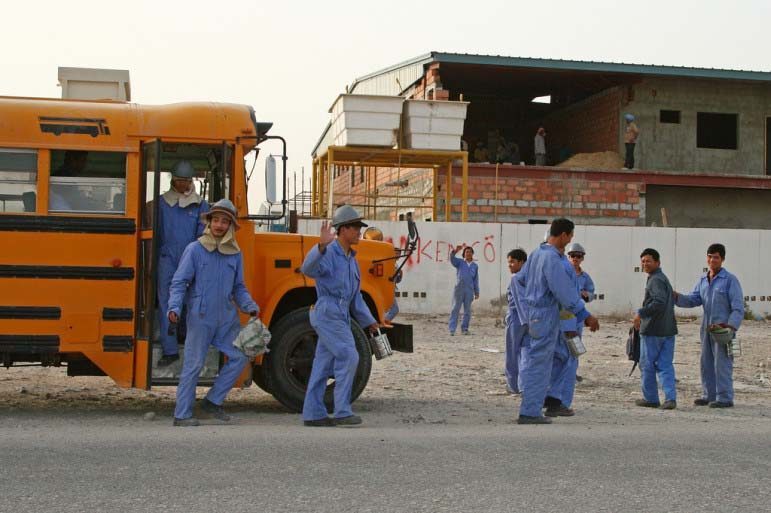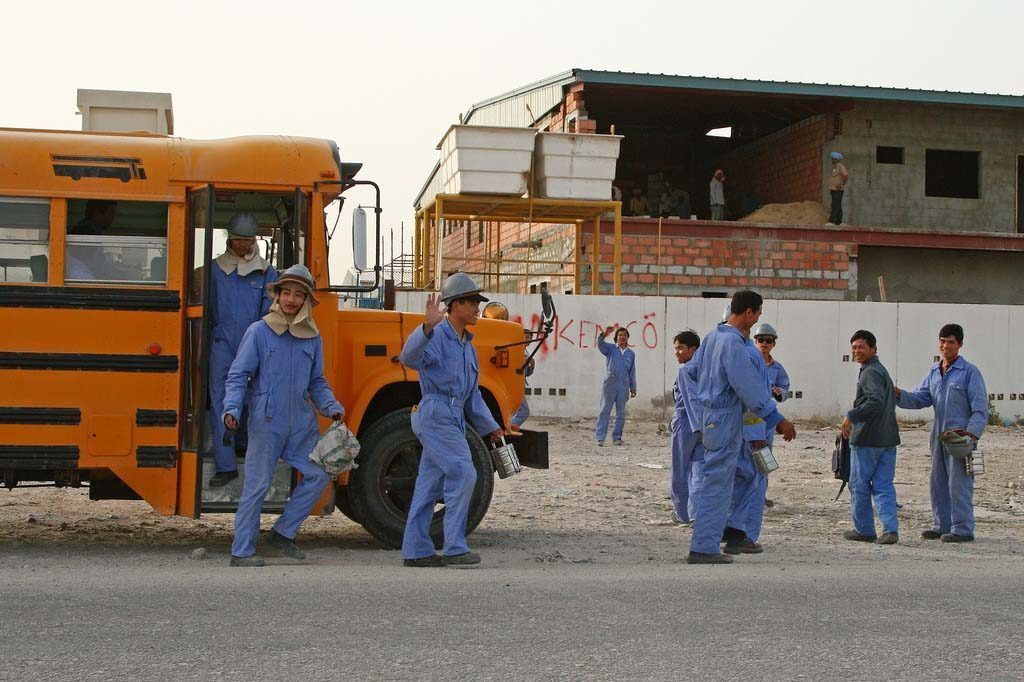
The government department in charge of constructing Qatar’s new roads, highways, schools and hospitals may soon force its contractors to provide their employees with minimum living and worker conditions, a human rights advocacy group has said.
At a press conference late Thursday afternoon, Human Rights Watch researcher Nick McGeehan said he was told by individuals “close to the government” that Qatar’s public works authority, Ashghal, will require its contractors to follow a workers’ code of conduct.
Similar “worker’s charters” have been adopted by Qatar Foundation (QF) and the Supreme Committee for Delivery and Legacy, which is overseeing the country’s preparations for the 2022 World Cup.
The standards were introduced by the two organizations responsible for many of the country’s most prominent construction projects following international criticism of human rights abuses of migrant workers in Qatar.
These include employers using exploitative recruitment practices, forcing workers to live in overcrowded and substandard housing and not paying employees on time.
 The organizations’ codes of conduct stipulate that any company bidding to work on their projects must provide a minimum standard of living and working conditions for its employees.
The organizations’ codes of conduct stipulate that any company bidding to work on their projects must provide a minimum standard of living and working conditions for its employees.
In the case of the Supreme Committee’s Workers’ Welfare Standards, these requirements include allowing employees to keep their passports and only using recruitment firms that don’t charge migrants fees, as well as a ban on bunk beds in labor camps.
Human rights advocates have noted that while the standards are a welcome development, they only cover a fraction of Qatar’s massive migrant labor workforce.
If Ashghal were to adopt and enforce similar measures, however, many of the country’s construction and manpower firms that provide substandard accommodations and working conditions would find themselves shut out of a large portion of the country’s infrastructure projects.
An Ashghal spokesperson could not immediately be reached for comment.
McGeehan highlighted the adoption of these conduct codes by QF and local World Cup organizers as a positive development in Qatar, which he concedes has become a “lightening rod” for criticism of migrant worker abuses that occur throughout the region.
However, he said it was still too early to assess the effectiveness of the conduct codes in improving local living and working standards, and cautioned that they are no substitute for national reforms.
“We’ll never accept a two-tier labor system,” McGeehan said. “It’s not sufficient for Qatar to simply say, ‘We’ve protected the guys building the stadiums’ … This should be a blueprint for reform, not a way of circumventing state-led reform.”
Still waiting
Yesterday’s press conference, held to launch the latest edition of HRW’s annual report that documents human rights practices in dozens of countries, also touched on the limited progress on reforming Qatar’s sponsorship (kafala) system.
Government officials proposed changes last May that were endorsed by the country’s business community several months later.
The changes were supposed to come into effect in late 2014 or early this year and include measures aimed at making it easier for expats to change jobs and leave the country, as well as harsher penalties for passport confiscation and non-payment of wages.
McGeehan reiterated yesterday that the measures fall short of what HRW had expected and called on Qatar to abolish the exit permit system outright and announce a firm timeline for implementing reforms.
Freedom of expression

HRW also called on local authorities to release Qatari poet Mohammed Rashid al-Ajami, who is currently serving a 15-year prison sentence after being recorded reciting verses that were indirectly critical of the country’s ruling family.
McGeehan called the conviction a violation of al-Ajami’s right to freedom of expression.
However, McGeehan said it was also important to note that compared to some neighboring countries, Qatar is a leader in allowing free speech and highlighted how HRW can visit the country, meet with government leaders and speak to the media unimpeded.
“Although we don’t necessarily agree with the Qatari government on many issues – and they don’t agree with us on issues – we’re able to talk freely about it. In other countries in the region, we simply can’t do that,” he said. “We hope that Qatar can maintain that status.”
Thoughts?







